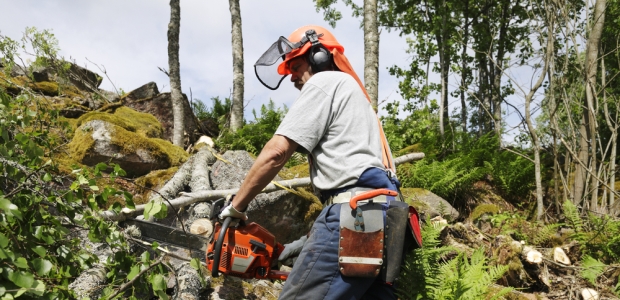
Forest Service Proposes Policy on Sawyers' Training
It would allow the use of chain saws and crosscut saws on NFS lands only if the sawyer has successfully completed training and field evaluation, possesses a valid certification card, and meets any other specified qualifications to perform assigned saw work, including current first aid and CPR certification.
The U.S. Forest Service is seeking public comments on a proposed national policy on the training required of employees, consultants, and volunteers who use chain saws and crosscut saws on lands managed by the agency. The policy would not apply to groups including contractors, special use permit holders, or private firewood cutters.
"Our first priority is safety," said Leslie Weldon, deputy chief for the agency's National Forest System. "The proposed national policy would ensure that our employees and partners are trained consistently to help us complete critical work on our national forests in a safe manner."
Since the 1970s, the nine USFS regions have developed policies concerning employees' and partners' use of chain saws and crosscut saws, which are often used for trail maintenance activities and other work on national forests, but the proposed national policy would create a national saw program and standardize instruction, knowledge, and skill requirements for all USFS sawyers. The comment deadline is Aug. 17, 2015.
Chain saw sawyers must be at least 18 years old, while the minimum age for crosscut sawyers is 16.
USFS also plans to develop a National Sawyer Database to be used to track national sawyer certifications for those who have met the training and evaluation requirements in the use of these saws. Certifications will be recognized across the NFS system. The proposed policy will allow the use of saws on NFS lands only if the sawyer has successfully completed training and field evaluation, possesses a valid National Sawyer Certification Card, and meets any other specified qualifications to perform assigned saw work, including current first aid and cardiopulmonary resuscitation certification.